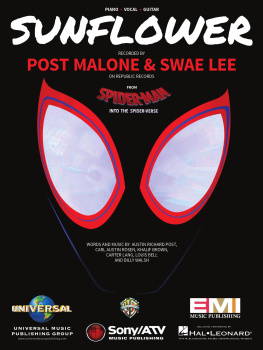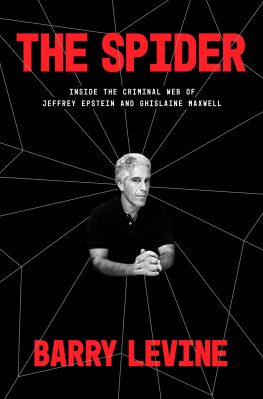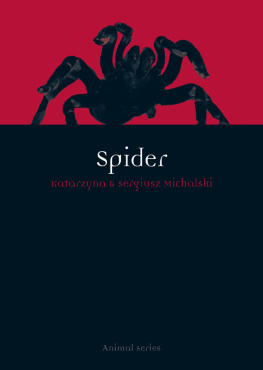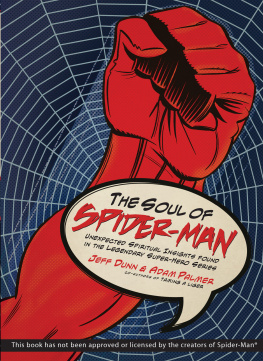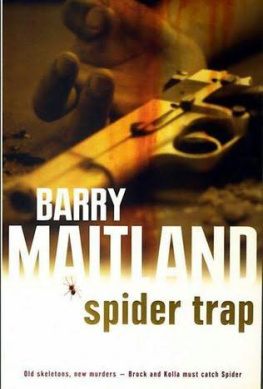Barry Maitiland - Spider Trap
Here you can read online Barry Maitiland - Spider Trap full text of the book (entire story) in english for free. Download pdf and epub, get meaning, cover and reviews about this ebook. genre: Detective and thriller. Description of the work, (preface) as well as reviews are available. Best literature library LitArk.com created for fans of good reading and offers a wide selection of genres:
Romance novel
Science fiction
Adventure
Detective
Science
History
Home and family
Prose
Art
Politics
Computer
Non-fiction
Religion
Business
Children
Humor
Choose a favorite category and find really read worthwhile books. Enjoy immersion in the world of imagination, feel the emotions of the characters or learn something new for yourself, make an fascinating discovery.

- Book:Spider Trap
- Author:
- Genre:
- Rating:4 / 5
- Favourites:Add to favourites
- Your mark:
- 80
- 1
- 2
- 3
- 4
- 5
Spider Trap: summary, description and annotation
We offer to read an annotation, description, summary or preface (depends on what the author of the book "Spider Trap" wrote himself). If you haven't found the necessary information about the book — write in the comments, we will try to find it.
Spider Trap — read online for free the complete book (whole text) full work
Below is the text of the book, divided by pages. System saving the place of the last page read, allows you to conveniently read the book "Spider Trap" online for free, without having to search again every time where you left off. Put a bookmark, and you can go to the page where you finished reading at any time.
Font size:
Interval:
Bookmark:
Barry Maitiland
Spider Trap
Snow began to fall over the city late on Thursday night, in mean little flakes at first, but then in plump silent gobbets. By dawn, when the security guard reached the school at the end of Cockpit Lane, the whole of London lay under a muffling blanket of white. As he checked the gates and fences he noticed what looked like a fresh trail leading through the snow beside the empty garage building next door, as if something had been dragged from its rear door. He was very much inclined to ignore it, but the garage was technically part of the school premises, and there had been a spate of fires recently. Investigating, he found the door slightly ajar. Inside, his flashlight picked out two figures curled up together on the bare concrete floor. He took them for children and might have said they were asleep, except that it was far too cold to be lying like that without blankets. They didnt respond to his challenge, and he noticed a spatter of dark stains all around them on the floor. When he moved closer he made out plastic tape binding their wrists, and then the shocking wounds in the backs of their heads.
The murders in Cockpit Lane might have passed without much public notice except that the victims were two young girls, only sixteen years old, both shot through the head. They had also died in the constituency of Michael Grant, Member of Parliament for Lambeth North and a vigorous campaigner against crime in his inner South London community. The youngest black member of the House of Commons, Grant was a charismatic speaker whose compelling voice and handsome face were soon all over the media, describing the Cockpit Lane girls, Dana and Dee-Ann, as only the latest in a long series of tragic victims of,as he put it,an evil alliance of poverty, drugs, guns and criminal business interests operating in the district.
The press immediately dubbed the shootings a Yardie massacre, despite police reservations about the use of the term, which implied the involvement of Jamaican immigrants. To the press it was Yardie because it was violent, guns and drugs were involved (crack cocaine was found in the girls pockets), and both the victims and just about everyone else in the neighbourhood were of West Indian origin.
By late afternoon, media interest in the tragedy had risen to such a pitch that Scotland Yard announced the formation of a Major Inquiry Team, led by Detective Chief Inspector David Brock and officers from Homicide Command, together with local detectives. They would be supported by members of the Operation Trident squad,which had been established some years earlier to combat gun crime in Londons black communities.
Beyond the hissing radiators, through the tall windows of the upstairs classroom, Adam Nightingale could see over the back wall of the school playground to the dazzling white wasteland beyond, across which the thin black lines of the railway tracks traced a sweeping curve. On seeing the snow, his mothers first words that morning had been,Thats it, Adam, were goin back to Jamaica. They wouldnt, of course. She always said that when it snowed, but he thought it was magic.
The class was unsettled, whispering and passing notes. When theyd arrived for school that morning theyd been met by the sight of ambulances and police cars blocking the Lane. Theyd stood in huddled groups, lit by the strobing lights, straining to catch the squawk of the police radios. Gradually a little information had rippled through the excited mob, just enough to breed rumours and questions. Were the girls from Camberwell Secondary? Had they been raped? Throughout the morning, classes had been distracted by the sirens and the helicopters. When the bell rang for their lunchbreak, theyd rushed out into the street, hung around the police barrier and pestered the cops asking questions in the Cockpit Lane street market and searching the alleyways and backyards.
There were many empty seats when school started again in the afternoon,and the teachers struggled against the mood of distracted restlessness. Adam felt the horrible excitement more than anyone. It ate away at him and made him feel almost physically ill. He had his own ideas about what had really happened, but as usual no one was interested in what he had to say. It was the guns that fascinated them most and there had been much technical discussion about Uzis and Mach 10s, Brownings and Glocks, but the others only scoffed when he offered his opinions. He felt as if he might literally explode with frustration at the familiar sense of insignificance, of being excluded.
Mr Pemberton was oblivious to it all. He was drawing a graph on the board, a sweeping curve just like that of the rail line. A parabola, he said. Nobody paid any attention.
The train tracks formed one curving side of a triangle of railway land bordered by the school wall and by the back fences of the warehouses along Mafeking Road. The walls and fences were too high to climb, and so this inaccessible little bit of wilderness in the middle of crowded inner London had become an island of mystery to the kids of Camberwell Secondary. There were stories of valuable things buried there, of stolen goods thrown from trains, and of strange animals in hidden lairs. Adams mind often turned to these stories when he lay alone in bed at night, imagining himself a hero, penetrating the mysterious triangle and making a stupendous discovery.
Now the coppers were on the railway land, searching with sticks and metal detectors along the border against the school and garage where the girls were found. They must be looking for the killers gun, Adam thought, possibly thrown over the back wall. The sight of them filled him with anguish. Suppose those probing sticks, those powerful detectors, found something else, another prize, the great prize-his prize.
A train came rumbling around the bend from the Elephant and Castle direction, giving off vivid flashes of blue light where snow had drifted across the electric rail. In his nightly imaginings Adam had worked out a way of getting onto the triangle, in theory. In theory, because it would mean approaching from the other side of the tracks, and stepping over the high voltage electric rails that powered the trains. Adam shivered at the thought of that, imagining the treasure hunter turned to a cinder in a flash of blue.
Pemberton droned on, writing a formula with his squeaky marker, y=ax2+b, as if he could reduce the curve of the tracks, smooth and dangerous, to a few symbols on a board. From his desk by the window, Adam peered through his glasses at the undulating white landscape and was almost sure that he could make out the faint lines of fox trails converging on a darker patch, far beyond where the coppers were searching. Hed first spotted the foxes during a boring English lesson last year. This morning theyd have woken to find the entrance to their hide covered in snow, and if theyd dug themselves out and gone foraging theyd have left tracks that a hunter could follow back to their den, and to the trophies they might have hidden there, including, perhaps, the great prize. With a little glow he imagined the kudos, the respect, that would come to anyone who retrieved it. In his head he traced each stage of the journey he must make to reach it, replaying the various difficulties and the final triumph. He also imagined the awful possibility that the coppers would find it first.By the time the maths lesson came to an end, Adam had reached a decision. He couldnt put it off. This was a day of awesome events. This time he would really have to do it.
He considered asking Jerry, his only real friend, to come along as a witness. But Jerry was clumsy, with big awkward feet. If you could picture anyone tripping over the third rail and going up in a ball of blue flame, it would be Jerry. So Adam decided to go alone, that afternoon, as soon as the cops had left.
Font size:
Interval:
Bookmark:
Similar books «Spider Trap»
Look at similar books to Spider Trap. We have selected literature similar in name and meaning in the hope of providing readers with more options to find new, interesting, not yet read works.
Discussion, reviews of the book Spider Trap and just readers' own opinions. Leave your comments, write what you think about the work, its meaning or the main characters. Specify what exactly you liked and what you didn't like, and why you think so.



